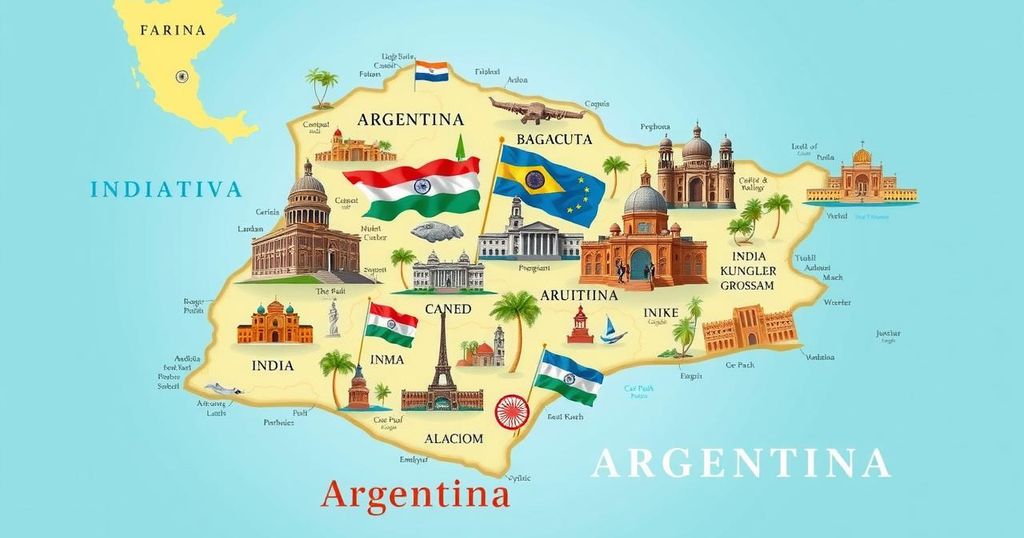Politics
AFRICA, AFRICAN NATIONAL CONGRESS, BOTSWANA DEMOCRATIC PARTY, DEMOCRACY, FRELIMO, GOVERNANCE, GOVERNMENT, JOHANNESBURG, JOHN ELIGON, LIBERATION PARTY, MOZAMBIQUE, NAMIBIA, OPPOSITION, OSCAR VAN HEERDEN, PARLIAMENTARY SEATS, POLITICS, SOUTH AFRICA, SOUTH WEST AFRICA PEOPLE ’ S ORGANIZATION, TIM, TIMO SHIHEPO, WINDHOEK
Isaac Bennett
0 Comments
Namibia’s Upcoming Election: SWAPO Faces Significant Challenges Amid Youth Discontent
Namibia’s election on Wednesday marks a crucial test for SWAPO, the ruling liberation party facing significant opposition amid rising discontent due to high unemployment and corruption. Voter demographics have shifted, with over 40% of registered voters being 35 or younger, presenting challenges and opportunities for traditional political dynamics. The election could result in Namibia’s first female president or a new leadership from an opposing party, highlighting critical socio-economic concerns in the country.
On Wednesday, Namibia’s electoral landscape faces significant scrutiny as voters prepare for a pivotal election, with the South West Africa People’s Organization (SWAPO) confronting formidable opposition and facing historical challenges. Since gaining independence in 1990, SWAPO has dominated Namibian politics, but increasing discontent tied to economic woes—including severe unemployment and a housing crisis—has undermined its popularity. The recent electoral defeats of former liberation parties in neighboring countries add to the pressure on SWAPO, which now must appeal to a youthful electorate.
The youth demographic, which comprises over 40% of the 1.4 million registered voters, may influence this election decisively, despite their historically lower turnout rates. This emerging generation is increasingly indifferent to the victories of past liberation struggles, prioritizing immediate economic concerns such as job scarcity over historical narratives. In a bid to engage younger voters, SWAPO has enlisted popular South African artists for its rallies and has included younger candidates in its lineup.
Despite the potential for opposition candidates to divide the vote, SWAPO’s extensive rural support and previous electoral successes must not be overlooked. The significance of this election cannot be understated, as Namibia could elect its first female president in Netumbo Nandi-Ndaitwah or mark the inaugural ascent of a leader from an opposing party.
The electoral framework stipulates a direct voting process for presidential candidates, with a runoff contingent on no candidate achieving over 50% of the vote. The announcement of the results is anticipated within five days, determining the direction of Namibia’s political future amidst its socio-economic challenges.
Namibia’s history presents a backdrop of liberation and struggle against colonialism, with SWAPO emerging as a dominant political entity post-independence. However, the recent trend of declining support for liberation parties across southern Africa indicates a shifting political climate. Factors such as high unemployment rates, a debilitating housing crisis, and pervasive corruption have contributed to the waning popularity of SWAPO and the challenge of appealing to a younger voter base that prioritizes economic stability over historical commitments. The election is particularly significant, as it represents a potential for substantial political change, underscoring the tension between the legacy of past struggles and the contemporary realities facing Namibians.
In conclusion, the impending Namibian election represents a critical juncture for SWAPO as it navigates the complexities of youthful disillusionment with traditional party ideologies and pressing socio-economic challenges. While the party strives to maintain its historical dominance, the evolving political landscape and the potential emergence of a rival leadership present compelling narratives that will shape Namibia’s future. This electoral cycle may not only reflect the will of the electorate but also signify a broader shift in political allegiance across southern Africa.
Original Source: www.nytimes.com




Post Comment